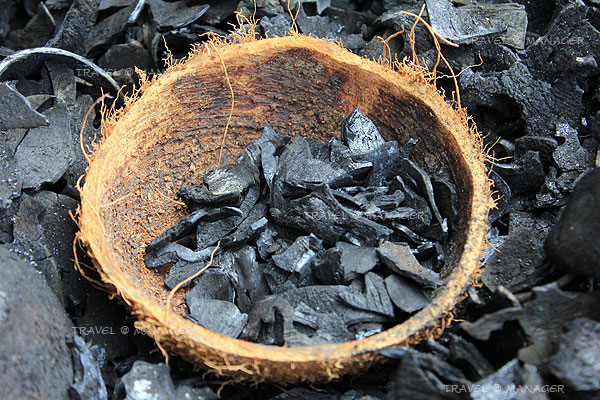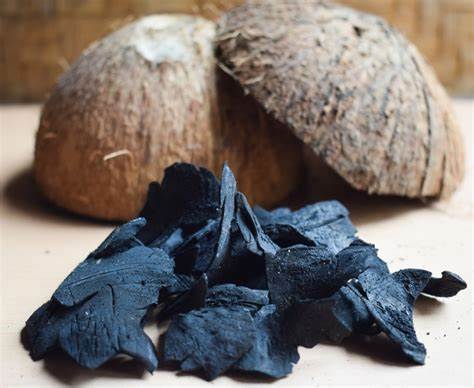In the ongoing battle against climate change and the pressing need to reduce carbon emissions, innovative and sustainable solutions are crucial. One such solution lies in the transformative process of converting coconut shells into charcoal, a practice that not only mitigates environmental impact but also presents an economically viable alternative. In this comprehensive exploration, we will delve into the process of coconut shell to charcoal conversion and its potential as a powerful tool for reducing carbon emissions by coconut charcoal machine.

The Coconut Shell Advantage:
Coconut shells, a byproduct of the coconut industry, have long been viewed as waste material with limited utility. However, recent developments in sustainable practices have unveiled the immense potential hidden within these discarded shells. Unlike traditional methods of disposal, such as burning or burying, converting coconut shells into charcoal provides a sustainable and environmentally friendly approach to waste management.
Sustainable Resource Utilization:
Coconut trees are abundant in tropical regions, making coconut shells an easily accessible and renewable resource. By repurposing these discarded shells, we not only reduce the burden on landfill sites but also create a sustainable source for charcoal production.
Environmental Impact of Coconut Shell Charcoal Production:
Compared to conventional charcoal production methods, the conversion of coconut shells into charcoal has a significantly lower environmental footprint. The process typically involves biochar machine for sale, where coconut shells are heated in the absence of oxygen, resulting in the release of volatile compounds and leaving behind a carbon-rich residue. This process emits fewer greenhouse gases and particulate matter compared to traditional wood charcoal production.
Carbon Sequestration and Storage:
The unique properties of coconut shell charcoal extend beyond its eco-friendly production process. Once produced, coconut shell charcoal acts as a carbon sink, capturing and storing carbon dioxide. This carbon sequestration feature makes it an attractive option for industries seeking to offset their carbon emissions and contribute to global efforts to combat climate change.
The Carbonization Process:
Harvesting and Collection:
The first step in the coconut shell to charcoal conversion process involves the collection of discarded coconut shells from coconut processing units. These shells are often considered waste and are readily available in large quantities.
Cleaning and Sorting:
The collected coconut shells undergo a cleaning and sorting process to remove impurities such as dirt and other organic materials. This step ensures that the carbonization process is efficient and produces high-quality charcoal.
Carbonization in Kilns:
The cleaned coconut shells are then subjected to controlled heating in specially designed kilns. The absence of oxygen during this carbonization process prevents complete combustion and results in the production of charcoal. The volatile compounds released during carbonization can be captured and used as biofuels, further enhancing the sustainability of the process.
Activation (Optional):
In some cases, the charcoal produced from coconut shells undergoes an additional activation process. Activation involves exposing the charcoal to high temperatures in the presence of a gas or chemical activator, creating a highly porous structure. This activated charcoal has increased surface area and adsorption capacity, making it suitable for various applications, including water purification and air filtration.

Economic Viability and Job Creation:
The coconut shell to charcoal conversion process not only benefits the environment but also holds economic promise. By creating a market for coconut shell charcoal, industries can generate revenue while simultaneously addressing environmental concerns. Additionally, the establishment of coconut shell processing units can create employment opportunities in regions where coconut farming is prevalent.
Income Generation for Coconut Farmers:
Engaging in coconut shell to charcoal production provides an additional revenue stream for coconut farmers. By monetizing a previously discarded byproduct, farmers can enhance their income and improve their overall economic well-being.
Job Opportunities in Processing Units:
The establishment of carbonizer machine creates jobs in various stages of the production process, from collection and cleaning to carbonization and packaging. This not only contributes to local economic development but also fosters a sense of community engagement.
Coconut Shell Charcoal Applications:
Household Cooking Fuel:
One of the primary uses of coconut shell charcoal is as a clean and sustainable alternative to traditional wood charcoal for household cooking. The low emission profile and high energy content of coconut shell charcoal make it an ideal choice for cooking applications, reducing indoor air pollution and associated health risks.
Industrial and Commercial Heating:
Industries requiring heat for various processes can benefit from the use of coconut shell charcoal as a sustainable fuel source. Its high calorific value and lower environmental impact make it an attractive option for applications such as metal smelting, brick kilns, and drying processes.
Water and Air Filtration:
Activated coconut shell charcoal, with its porous structure, is widely used in water and air purification systems. Its ability to adsorb impurities and contaminants makes it an effective medium for improving water quality and mitigating air pollution.
Agriculture and Soil Enhancement:
Coconut shell charcoal can be utilized as a soil amendment to enhance soil fertility and structure. Its porous nature promotes water retention and nutrient absorption, making it a valuable component in sustainable agriculture practices.
Carbon Emission Reduction and Climate Change Mitigation:
The adoption of coconut shell charcoal as a sustainable alternative to conventional fuels contributes significantly to carbon emission reduction and climate change mitigation.
Carbon-Neutral Energy Source:
The carbonization process captures and stores carbon dioxide within the coconut shell charcoal. When used as a fuel source, the released carbon dioxide is offset by the carbon sequestered during the growth of coconut trees, resulting in a carbon-neutral energy cycle.
Offsetting Deforestation:
The demand for wood charcoal has been a driving force behind deforestation in many regions. By promoting the use of coconut shell charcoal, we can reduce reliance on wood-based charcoal, preserving forests and their vital role in carbon sequestration.
Challenges and Solutions:
While the coconut shell to charcoal conversion process offers numerous benefits, it is not without challenges. Addressing these challenges is essential for the widespread adoption of this sustainable solution.
Technology and Infrastructure:
The implementation of coconut shell charcoal production requires appropriate technology and infrastructure. Investment in efficient kilns, processing units, and transportation systems is crucial to ensure the scalability and viability of the process.
Market Awareness and Demand:
Creating awareness about the environmental and economic benefits of coconut shell charcoal is essential to stimulate demand. Marketing campaigns, educational programs, and partnerships with stakeholders can play a pivotal role in fostering market acceptance.
Regulatory Support:
Government policies and regulations that incentivize the production and use of coconut shell charcoal can accelerate its adoption. Support in the form of subsidies, tax incentives, and favorable market conditions can encourage businesses to invest in sustainable practices.
Conclusion:
The conversion of coconut shells into charcoal represents a sustainable and economically viable solution for reducing carbon emissions. From waste material to a valuable resource, coconut shell charcoal offers a multifaceted approach to environmental conservation, economic development, and climate change mitigation. By harnessing the power of coconut shell charcoal, we can move towards a more sustainable future, where waste is transformed into wealth, and carbon emissions are curtailed, one coconut shell at a time.